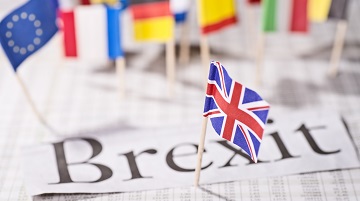
Today the UK and the EU have agreed an updated version of the draft political agreement, setting out the aims both sides wish to achieve in the negotiations for the future relationship between the UK and EU.
This is more extensive than the original draft declaration published last week. The latest version is twenty-six pages long – the previous was only seven – and contains more specific commitments by both sides on what they are committed to negotiating.
Air Transport Agreement
Aspirations for a future relationship on Aviation still includes a Comprehensive Air Transport Agreement, but with additional remarks that this should include ‘appropriate and relevant consumer protection requirements and social standards’. This is something the EU has probably pushed to add to the earlier statement, as certain EU legislation applies to these which they would not want the UK to drop (probably including the Flight Compensation Regulation 261/2004, and the Flight Time Limitations Regulation 965/2012).
European Aviation Safety Agency (EASA)
The big change is that the new draft political regulation makes specific reference to EASA. Both parties should make ‘further arrangements’ towards ‘close cooperation’ between EASA and the CAA. This seems to indicate that the relationship will continue to be the subject of negotiations between the EU and UK, and that there is still the possibility of the CAA remaining part of the EASA system (which is a key Brexit goal for ADS).
European Chemicals Agency (ECHA)
In addition to EASA, the chemicals agency – ECHA – is also listed as the second of the three regulatory agencies where ‘the possibility of cooperation’ will be explored. This is slightly less strong language than the reference to EASA under Aviation, but reflects, unlike the first draft declaration, the UK’s requests to participate in certain regulatory agencies. This intention was stated in the Prime Minister’s Mansion House speech in March, and the third agency she referred to – the EMA – is also referenced in the Political Declaration.
Overall
This is a welcome step forward, offering a greater degree of clarity about the ambitions of the two partners for their future relationship. However, the detail is not so great as to provide answers that industry needs. As a direction of travel it is positive, but much more information will be needed before long.





